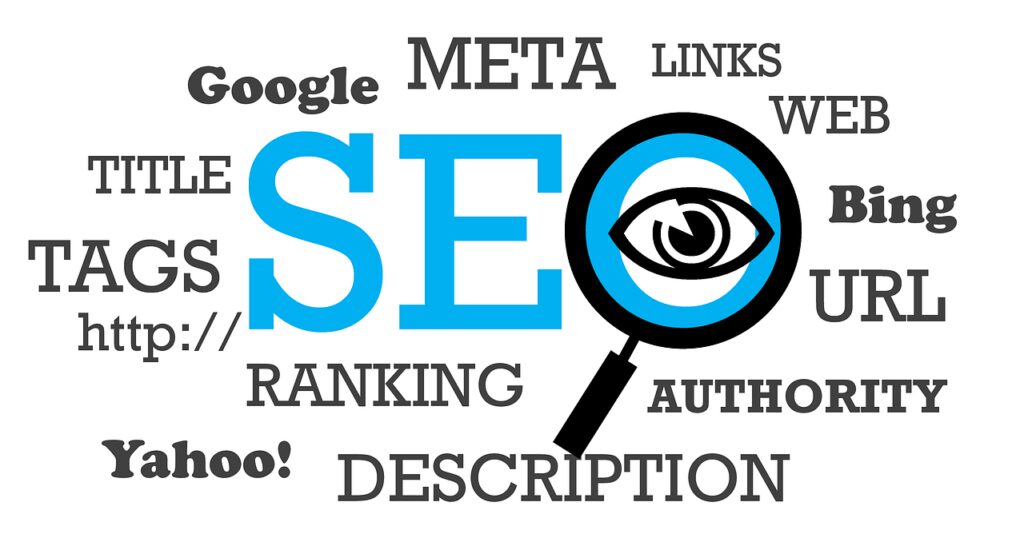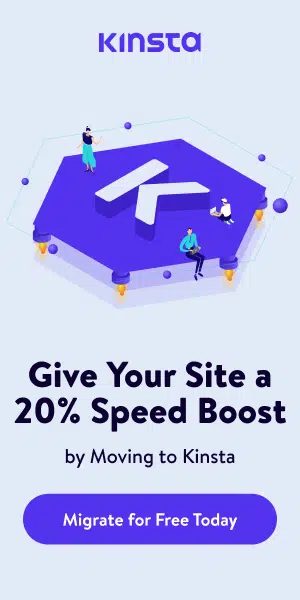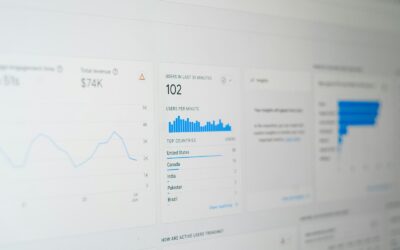Are you wondering how to rank higher on Google?
Building a strong online presence is crucial for small businesses navigating today’s digital landscape.
Getting your website to rank higher on Google can significantly boost your visibility, attract more organic traffic, and ultimately drive business growth.
But how do you increase your Google rank? In this blog post, we’ll explore effective strategies and insider tips to help small business owners climb the search engine ladder and outshine their competitors.
Understanding the Basics of SEO
Search engine optimization (SEO) is the foundation of any successful online strategy, and understanding search engine algorithms is crucial. It involves optimizing your web pages to improve your visibility in search results.
Looking for an experienced Wordpress Development company?
Keywords play a vital role in this process. Conducting thorough keyword research enables you to understand what your target audience is searching for.
Tools like Google’s Keyword Planner are invaluable for identifying seed keywords with high search volume and low competition.
SEO is often divided into two main components – on-page and off-page SEO.
On-page SEO focuses on optimizing elements such as title tags, meta descriptions, and internal links within your content.
Off-page SEO, on the other hand, involves building a strong backlink profile from external websites. Both strategies work in tandem to help your website rank higher on Google.
On-Page SEO Components
On-page SEO refers to the practices and techniques you implement directly on your website to enhance its position in search engine results.
This involves optimizing various elements of your web pages, such as content quality, HTML tags (title tags, header tags, and meta descriptions), images, and overall user experience.
By ensuring that your content is relevant, engaging, and structured appropriately, you create an environment that not only satisfies search engine algorithms but also meets the needs of your visitors.
Effective on-page SEO lays the groundwork for better visibility, contributing to your website's ability to rank higher on Google.
Title Tag
The title tag is an essential element of on-page SEO, as it appears as the clickable headline in search engine results.
A well-crafted title tag should incorporate relevant keywords and convey the essence of the page's content. It's important to keep the title under 60 characters to ensure it displays properly in search results.
A compelling title tag not only helps improve your ranking but also increases the likelihood of attracting clicks from potential visitors.
Meta Description
While not a direct ranking factor, the meta description plays a critical role in enticing users to click on your link during their Google searches by influencing user behavior.
This brief snippet should summarize the page content and include relevant keywords, ideally under 155 characters. A well-written meta description can significantly improve your click-through rate, making it an important aspect of your on-page SEO strategy.
Keyword Intent
Understanding keyword intent is vital for effective SEO. Search intent refers to the reason behind a user's search query—whether they are looking for information, intending to make a purchase, or seeking a specific website.
When you search Google, the top ranking pages show up on the first page. This is because those sites have informational keywords and are handling the content marketing in a way that Google understands.
By aligning your content with the user's intention, you can provide more relevant information and enhance user experience, ultimately leading to better rankings on Google. You should only have related keywords on your site!
Internal Linking
Internal linking refers to the practice of linking to other pages within your website. This strategy enhances the user experience by providing easy navigation and helps search engines understand the structure and hierarchy of your content.
Properly executed internal linking not only distributes page authority throughout your site but also encourages longer dwell times as users explore more of your offerings.
Off-Page SEO Components
Off-page SEO refers to the strategies and techniques implemented outside of your own website to improve its ranking in search engine results.
Unlike on-page SEO, which focuses on optimizing content and HTML tags, off-page SEO encompasses activities that build your site’s reputation and authority.
This typically includes garnering backlinks from reputable sites, engaging in social media marketing, and enhancing your brand’s online presence across various platforms.
By fostering strong external relationships and promoting your content effectively, you signal to search engines that your website is trustworthy and valuable, which can significantly boost your rankings and domain authority.
Backlinks
Backlinks are incoming links from external websites to your own. They signal to search engines that other sites find your content valuable enough to link back to it, and effective link building is essential for acquiring these backlinks.
The quality and quantity of backlinks are crucial for off-page SEO success, as they can significantly impact your website’s authority and credibility.
However, it’s important to note that not all backlinks are equal – spammy or low-quality links can actually harm your ranking.
Guest Blogging
Content marketing through guest blogging is a popular strategy for building backlinks and increasing brand exposure. By writing high-quality articles on reputable websites within your industry, you can reach new audiences and gain valuable inbound links.
It’s important to focus on creating valuable and relevant content, rather than solely focusing on link building.
Social Media
Having a strong presence on social media can also contribute to off-page SEO.
By promoting your content and engaging with your audience on platforms like Facebook, Twitter, and LinkedIn, you can increase brand awareness and attract more traffic to your website.
Additionally, sharing your content on these channels can also lead to backlinks from other users who find your posts valuable enough to include in their own content.
Technical SEO for Small Businesses
Technical SEO addresses the backend elements of your website that impact its performance in search rankings.
Common technical SEO problems include broken links and slow page speed. Ensuring that your site is mobile-friendly is another critical factor, as Google prioritizes a mobile device in its rankings.
Fixing these issues may involve enhancing your web page’s load time, improving its mobile responsiveness, and ensuring all links direct to active pages.
SEO plugins can assist in diagnosing and resolving technical issues, making it easier for small business owners to maintain an optimized website.
Content is King: Creating High-Quality Content
Producing high-quality content is key to engaging your audience and satisfying search intent.
It’s not just about using the target keyword; it’s about creating informative, valuable content that answers your audience’s search queries.
Incorporating long-tail keywords can help capture niche traffic and improve your keyword rankings.
Creating content that resonates with your audience involves understanding their needs and interests. Whether it’s a blog post or a web page, focus on delivering quality content that provides genuine value.
Engage readers by answering common questions and offering practical tips relevant to your industry.
Utilizing Google Tools to Improve Ranking
Google offers an array of free tools that can enhance your SEO efforts, including the Google Keyword Planner. Google Analytics provides valuable insights into your website’s traffic patterns, helping you understand where your visitors come from and what content they engage with.
Similarly, Google Search Console allows you to monitor your site’s performance and diagnose issues directly affecting your Google rankings.
For local businesses, a Google Business Profile is essential. It boosts your visibility in local search results and attracts nearby customers.
Regularly upload photos, update your business information, and engage with customer reviews to enhance your online presence.
Building a Strong Backlink Profile
Backlinks are a powerful ranking factor, serving as endorsements from other websites. Acquiring high-quality backlinks can boost your site’s authority and enhance its visibility in search results.
Ethical link-building practices include guest blogging, collaborating with industry influencers, and participating in relevant online forums and communities.
Avoid black-hat SEO tactics such as buying links, as these can lead to penalties from search engines. Focus on building meaningful connections and providing valuable content that naturally earns links over time.
Measuring Success and Adjusting Strategies
Monitoring your SEO efforts is crucial for continuous improvement. Track metrics such as organic traffic, keyword rankings, and bounce rates to gauge the effectiveness of your strategies.
Analyzing this data enables you to make informed decisions and refine your approach to achieve better results.
Regularly update your content to keep it fresh and relevant. Search engines favor web pages that provide current and accurate information.
Additionally, adjust your keyword strategy based on changing search trends and user behavior.

10 Tips and Tricks | How to Rank Higher on Google
Conduct Thorough Keyword Research: Use tools like Google Keyword Planner to identify relevant keywords and long-tail phrases that your audience is searching for.
Optimize On-Page SEO: Ensure that your target keywords appear in key areas such as the title, headings, and throughout your content. Use tools like Yoast SEO to assist you in on-page optimization.
Create High-Quality Content: Focus on providing informative and engaging content that addresses your audience's needs. Check out Content Marketing Institute for insights on crafting exceptional content.
Improve Page Load Speed: Use tools like Google PageSpeed Insights to analyze and enhance your website's load time, as slower sites tend to rank lower.
Ensure Mobile-Friendly Design: Switch to a responsive design that adapts to various screen sizes. Google's Mobile-Friendly Test can help you verify this.
Utilize Internal Linking: Strengthen your site's architecture and keep users engaged by linking to related content within your website. This also helps spread link equity.
Leverage Social Media Platforms: Share your content across social media channels to broaden your reach. Buffer can help you manage your posts effectively.
Build a Strong Backlink Profile: Prioritize acquiring backlinks from reputable sites within your industry. Tools like Ahrefs can assist you in tracking and planning your backlink strategy.
Regularly Update Content: Keep your website fresh and relevant by revisiting existing content and updating it with new information. This signals to Google that your site is active.
Monitor Your Analytics: Use Google Analytics to track visitors, traffic sources, and user behavior on your website. This data is pivotal for refining your SEO strategies.

How to Rank Higher on Google | Priceless Consulting Can Help You!
Navigating the complexities of SEO can be daunting, which is where Priceless Consulting comes in. Our team of SEO experts understands the intricacies of search algorithms and the latest trends that influence rankings.
We employ a comprehensive approach, beginning with a thorough analysis of your current online presence and target market. By identifying key opportunities and areas for improvement, we devise tailored strategies designed to enhance your visibility and drive organic traffic.
Furthermore, we assist in content creation and optimization, ensuring that your website not only meets SEO standards but also resonates with your audience.
With our expertise in backlink acquisition, we help establish connections with high-authority sites, boosting your domain authority and credibility.
Through ongoing monitoring and adjustment of your SEO strategy using advanced analytics, Priceless Consulting is committed to helping you climb the ranks on Google and achieve sustainable growth for your business.

Conclusion
In today’s competitive digital landscape, understanding how to rank higher on Google is vital for small businesses seeking to boost their online visibility.
By focusing on SEO fundamentals, addressing technical issues, producing high-quality content, leveraging Google’s tools, and building a solid backlink profile, small business owners can enhance their search engine standing and drive sustainable growth.
If you’d like to start increasing your web presence, reach out to us at Priceless Consulting. We can make your business rank higher on Google so your customers can find you!












